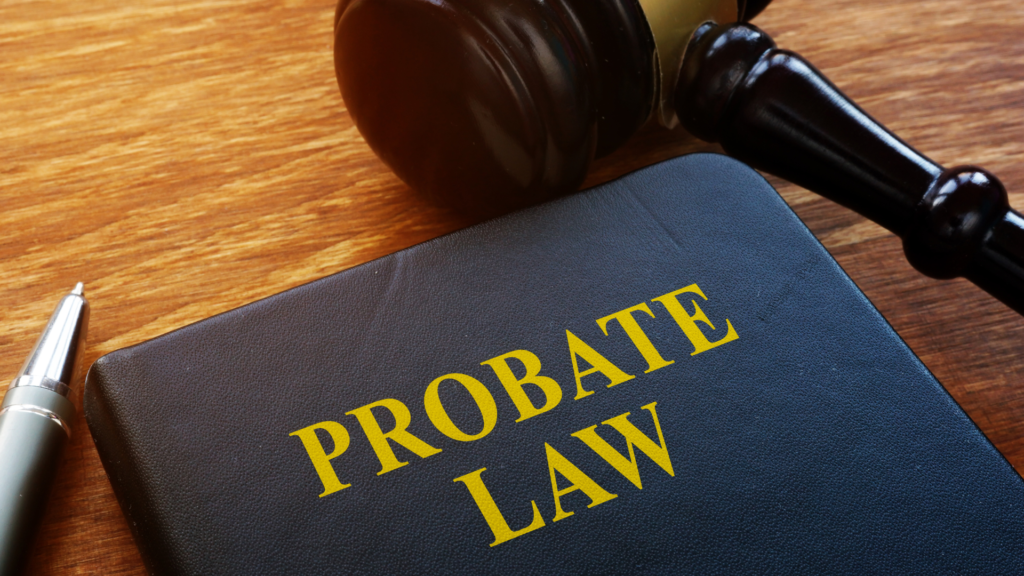When it comes to the world of probate and estate law, there are more myths and misconceptions floating around than you might think. These misconceptions can lead to unnecessary stress and confusion during an already challenging time. To help you navigate this complex area of law, we’re here to debunk some of the most common misconceptions and shed light on the truth behind probate and estate matters. Let’s dive in and demystify this often misunderstood aspect of legal affairs.
Misconception #1: Probate Is Always a Lengthy and Costly Process
Truth: While it’s true that probate can sometimes be a lengthy and expensive process, it’s not always the case. The duration and cost of probate proceedings can vary widely depending on several factors, including the size and complexity of the estate, state laws, and the presence of a valid will. In many simple cases, probate can be relatively straightforward and quick.
What You Need to Know:
- The complexity of the estate matters: If the estate is small and uncomplicated, the probate process may be relatively swift and inexpensive.
- State laws differ: Probate laws and procedures vary from one state to another, so what’s true in one place may not be in another. This is why you need to look for an Orange County probate attorney – top local estate lawyer in your area.
- Having a will can streamline the process: If the deceased person had a valid will in place, it often makes probate proceedings more efficient.
Misconception #2: Everything Goes Through Probate
Truth: Not everything in an estate has to go through probate. Many assets can be transferred outside of the probate process, which can save time and money.
What You Need to Know:
- Jointly owned property: Assets held in joint tenancy or with rights of survivorship typically pass directly to the surviving owner and bypass probate.
- Beneficiary designations: Life insurance policies, retirement accounts, and some bank accounts allow you to designate beneficiaries. These assets usually transfer directly to the named beneficiaries.
- Living trusts: Assets placed in a living trust can avoid probate since they are no longer considered part of the probate estate.
Misconception #3: Probate Is Only About Distributing Assets
Truth: While asset distribution is a significant part of probate, it’s not the only purpose. Probate also serves to settle outstanding debts, pay taxes, and ensure that the deceased person’s wishes, as outlined in their will, are followed.
What You Need to Know:
- Creditors have a say: Probate provides a structured process for creditors to make claims against the estate, ensuring that debts are settled fairly.
- Tax matters: Estate taxes and income taxes may need to be addressed during the probate process.
- Will execution: The probate court oversees the proper execution of the deceased person’s will, ensuring that the intended beneficiaries receive their inheritances.
Misconception #4: Only Wealthy People Need to Worry About Probate
Truth: Probate can affect people from all walks of life, not just the wealthy. Regardless of the size of your estate, if you have assets that need to be transferred after your passing, probate may come into play.
What You Need to Know:
- Small estates can also benefit: Even individuals with modest estates can benefit from estate planning to minimize probate and ensure their wishes are carried out.
- Avoiding disputes: Having a clear estate plan in place can help prevent family disputes and ensure that your assets are distributed as you wish.
Put simply, estate planning is not just for individuals with substantial wealth; even those with modest estates can benefit greatly from having a comprehensive plan in place. By engaging in estate planning, individuals can minimize the burdens of probate and ensure that their assets are distributed according to their wishes. That being said, with the help of estate planning resources (available both online and offline), individuals can gain a deeper understanding of the intricacies involved and make informed decisions to protect their assets and ensure their legacy is preserved.
Misconception #5: You Can’t Change Anything Once Probate Begins
Truth: While probate does follow a structured legal process, it’s not set in stone. There are situations where changes can be made, but they typically require court approval.
What You Need to Know:
- Codicils and amendments: If you need to make changes to a will during probate, you may be able to do so through codicils (additions or amendments to the will).
- Court approval: Significant changes to the will or estate plan during probate will usually require court approval.
Misconception #6: You Don’t Need a Lawyer for Probate
Truth: While it’s possible to navigate probate without an attorney, it can be a complex and daunting process. Having a knowledgeable attorney can help you avoid pitfalls and ensure that everything proceeds smoothly.
What You Need to Know:
- Legal guidance can be invaluable: An attorney can help you understand the specific probate laws in your state and provide guidance throughout the process.
- Avoid costly mistakes: A lawyer can help you avoid errors that could lead to delays or disputes.
Misconception #7: Probate Will Automatically Distribute Everything According to the Will
Truth: While probate aims to follow the deceased person’s wishes as outlined in their will, there are situations where the distribution may not align with the will’s instructions.
What You Need to Know:
- Challenges can arise: Family members or other interested parties may challenge the validity of the will or claim that it doesn’t accurately represent the deceased person’s intentions.
- Court decisions: If a dispute arises, the probate court may have to make decisions about how assets are distributed.
Misconception #8: Probate Always Leads to Family Feuds
Truth: While probate disputes can and do occur, they are not inevitable. Many families navigate the probate process without major conflicts.
What You Need to Know:
- Open communication: Clear and open communication among family members can help prevent disputes and ensure everyone is on the same page.
- Professional mediation: In cases where conflicts arise, mediation or alternative dispute resolution methods can help resolve issues without going to court.
Misconception #9: You Can Avoid Probate Entirely
Truth: While it’s possible to reduce the impact of probate through careful estate planning, it’s challenging to avoid it entirely if you have assets that need to be transferred after your passing.
What You Need to Know:
- Strategies to reduce probate: You can employ various estate planning strategies, such as creating a living trust, designating beneficiaries, and gifting assets, to minimize the assets subject to probate.
- Some assets may still go through probate: Even with careful planning, certain assets may still end up in probate if they weren’t properly accounted for in your estate plan.
Misconception #10: Probate Is the Same Everywhere
Truth: Probate laws and procedures can vary significantly from one jurisdiction to another, so it’s important to understand the specific rules that apply in your area.
What You Need to Know:
- State laws matter: Probate is governed by state laws, and each state has its own rules and requirements.
- Seek local expertise: If you’re dealing with probate, it’s advisable to work with an attorney who is knowledgeable about the laws in your specific jurisdiction.
Conclusion
Probate and estate law don’t have to be shrouded in mystery and confusion. By dispelling these common misconceptions, we hope to provide you with a clearer understanding of how probate works and what you can do to make the process as smooth as possible. Remember, every situation is unique, so seeking legal advice and planning ahead are key steps in ensuring your wishes are honored and your loved ones are taken care of when the time comes.

